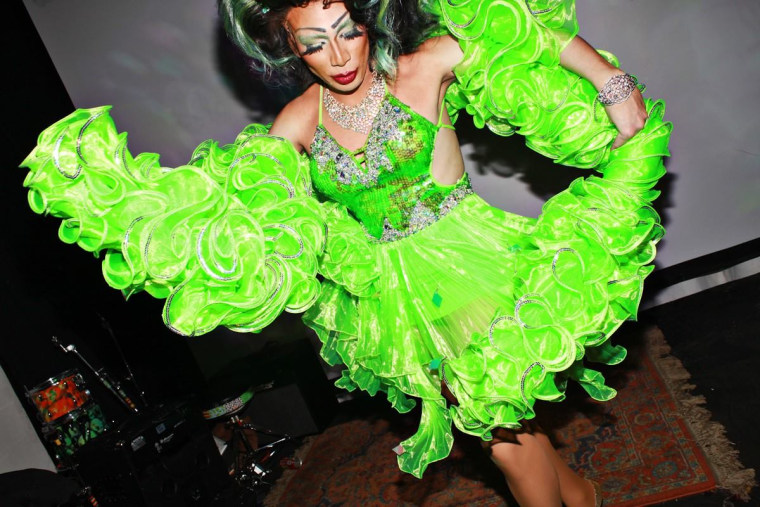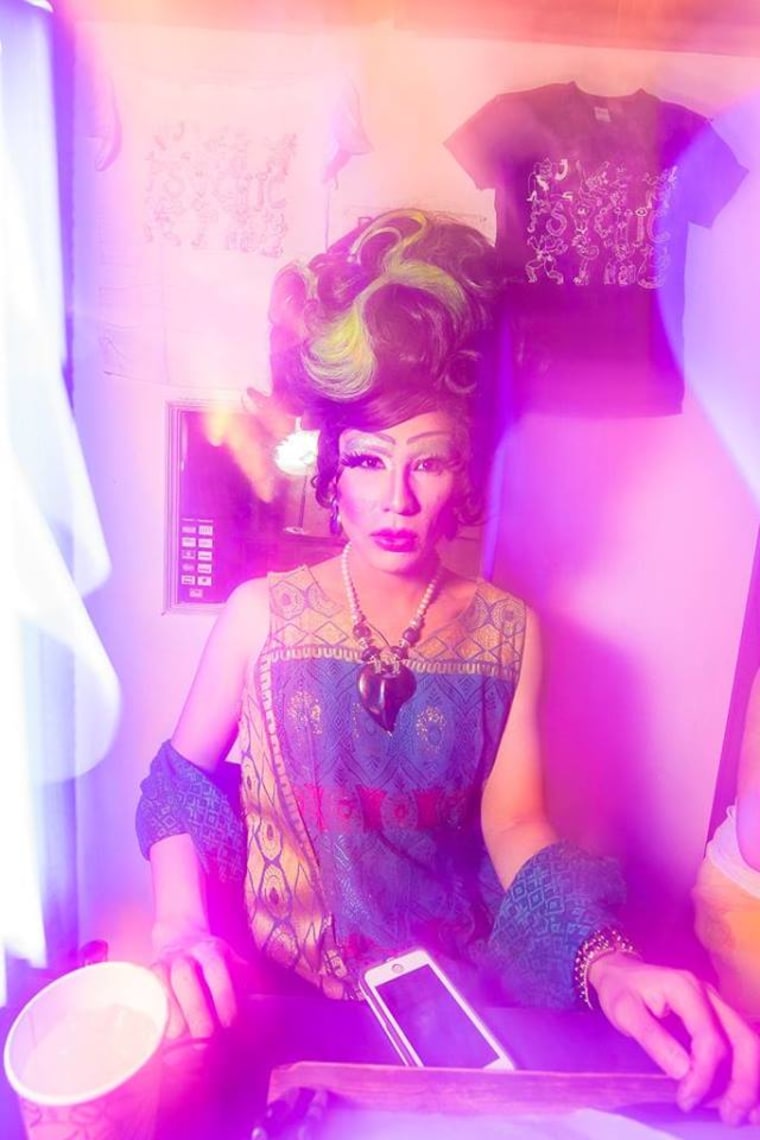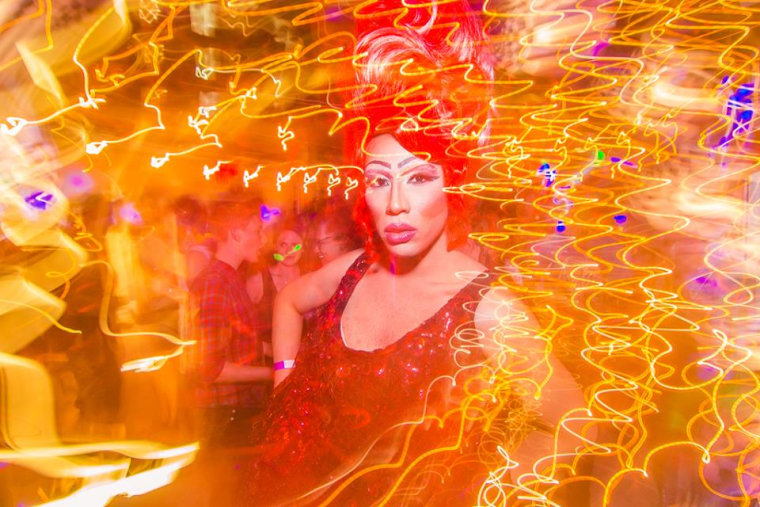I’ll take a Lady Quesa’Dilla with a side of youth empowerment, thank you!
When the Chicana drag queen performing in a Dolly Palooza tribute show announced that she counsels LGBT youth at The Center in Manhattan, you’re naturally left wanting more. If people were surprised to see Lady Quesa’Dilla at a Dolly Tribute night, by the time she was done with her version of ‘Little Sparrow’ her connection to the legend was obvious.
After the applause died down, I knew I wanted to know more about the Mexican from Texas in the blonde wig. Turns out she’s paving the way not only for her own artistic ambitions, but for throngs of LGBT youth to find joy and acceptance being who they are.
Why did you choose to announce that you were a Chicano from Texas before your performance at Dolly Palooza?
Because I was a Latina doing a blonde. Part of my cultural identity as I navigate queer spaces and nightlife is that as a Latino performer I have to tone things down and I hate that. For me you are going to take me and you are going to accept me for who I am. And my narrative is that I am a queer Chicano from Texas, a queer Chicano from Mexico and that really plays a part in my character, the types of performances I do and the work I put out in the world.
What drew you to Drag?
I always felt I was going to do drag. In the time I’ve been doing it, RuPaul’s Drag Race has put a spotlight on drag and it's become extremely popular. But the reason I’m attracted to it is because I come from a performance background. I did theater in high school which lead to a scholarship to the New School which led me to getting into graduate degree in performance at NYU.

In doing drag, I am the star. It’s me as the lead, which is something I always wanted to do but wasn't given the opportunity. This is the way that I can fight for it and I continue to fight for it. Yes, I do a fierce lip sync. But I also have solo performance pieces that I’ve performed here in New York City, in Texas in Mexico and Montreal.
When you perform in different cities do you have Latino audiences and how do they react to you?
I rarely perform for audiences that are specifically Latino. But when Latinos see me perform, they usually reach out to me and say ‘Girl, I get you. I know what you’re saying. I know what it is to be a Latino, I know what it is to be a queer person of color navigating these different worlds.’
I don't have to set up the joke for them. They get it because so much of my narrative is similar to theirs. When I have the opportunity to play for a specific Latino audience, it’s a coming home.
Why did you start working at the LGBT Community Center?
It was in part my need for a job but also, and you can see this in my performance, my wanting to work for the community. I have always said that one of my favorite things about working at the Center is that at the end of the day, I know I have helped somebody in my community and to me that's the most important thing.

I’ve been there for almost five years. I sat at the front desk helping navigate people to the different services they needed.
Oftentimes I was the only person from our organization that the public would interact with and sometimes I had to deal with people who were just being malicious. But mostly I would deal with some that were in a mental health crisis or people that were having issues or people coming to the city for the very first time and wondering what the community center had to offer.
A year ago I was promoted to the youth department. My title is leadership developer; I lead different groups of young people that come to the Center.
We have a program that’s for 13- to 21-year-olds and a weekly queer film series. I lead discussion groups and also program up close internships. Now I'm in the process of starting a mentorship program and a youth pride chorus.
Unfortunately, ‘the closet’ is still a factor in the LGBT community, especially among Latinos. Are you ‘out’ to your friends and family?
I am out to everybody. I am originally from El Paso, Texas and this last winter I took my drag show Lady Quesa’Dilla down to there and performed for my entire family. It was extremely beautiful. I have a picture of me in high drag with both of my abuelitas. It’s something I will carry with me for the rest of my life because I know that’s not that case for many of my brothers and sisters in my Latino family. To have the respect, the admiration and the openness of my family is why I know that I am truly a blessed individual.
How do you feel about what happened in Orlando? How do you see the community moving forward?
What I want to note about this tragedy is that it was targeted specifically to queer people of color. To me that is the most devastating thing. As LGBT people, as a marginalized group, the nightclub is one of the most important spaces we have.
A nightclub on a Friday or Saturday night is church for us because it’s one of the very few places we’re allowed to manifest ourselves the way we want to. That’s the most tragic thing about it.
We will prevail, we will come up again.
But the lesson I hope everyone learns is that even within our community, there are still marginalized groups facing tons of violence, daily.
Transgender women face so much more violence that someone like me, a cisgender gay man. The violence towards LGBT people or people of color is nothing new. This is an extreme, but this I hope: We've all learned that there’s still a lot of violence and still a lot of work to be done, and the only way we're going to be able to get through this is to educate ourselves and to share that information with our allies and with people that aren’t our allies.
If you could play any role from any play from any time what would you want it to be?
Mother Courage. A queer Latino version of Mother Courage . Do something classical. Do it brown and do it queer.
